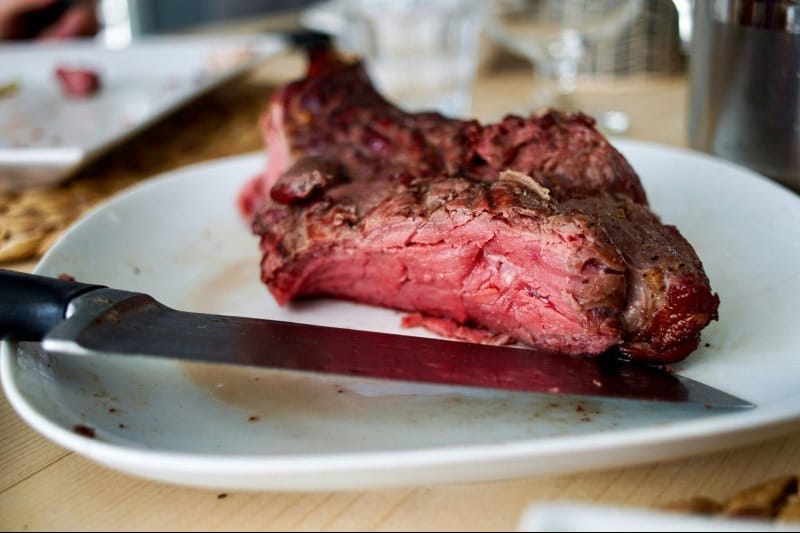Recent headlines have sparked concern about the link between eating ham, bacon, and beef and the risk of developing type 2 diabetes. This article explores the scientific evidence behind these claims and provides a balanced perspective on the relationship between red meat consumption and diabetes risk.
Key Takeaways:
- A large study found a modest increase in type 2 diabetes risk associated with processed and red meat consumption.
- The risk is relatively small, with a 15% increase linked to eating 50g of processed meat daily.
- Other factors like age, family history, and body weight play a more significant role in diabetes risk.
- Moderation, rather than complete avoidance, is recommended for red and processed meat consumption.
- A balanced diet rich in vegetables, fruits, and whole grains remains crucial for overall health and diabetes prevention.
The Meat of the Matter: Understanding the Research
Recent headlines claiming that "two slices of ham a day can increase your risk of type 2 diabetes by 15%" have caused quite a stir. But before you swear off your favorite deli meats, let's dive deeper into the research behind these claims[6].
The Cambridge Study
A comprehensive study led by the University of Cambridge analyzed data from nearly 2 million people across 20 countries[2]. The researchers found that consuming 50g of processed meat daily (equivalent to about two slices of ham) was associated with a 15% increased risk of developing type 2 diabetes over a decade[6].
For unprocessed red meat, the risk increase was slightly lower. Eating 100g of unprocessed red meat daily (about the size of a small steak) was linked to a 10% higher risk of type 2 diabetes[2].
Putting the Risk in Perspective
While these findings sound alarming, it's crucial to understand the context:
- Relative vs. Absolute Risk: The 15% increase is a relative risk. In absolute terms, the risk increase is much smaller[6].
- Other Risk Factors: Age, family history, ethnicity, and body weight play more significant roles in determining diabetes risk[6].
- Correlation vs. Causation: The study shows an association, not necessarily a direct cause-and-effect relationship[5].
The Science Behind the Link
Several factors may explain the potential connection between red and processed meats and type 2 diabetes risk:
Processed Meats
- Nitrates and Salt: These additives may affect insulin function and promote inflammation[6].
- N-nitroso Chemicals: Produced during digestion, these can damage cells and impact insulin function[6].
Red Meats
- Iron Content: High iron levels have been associated with increased diabetes risk, though iron deficiency is a more common concern[6].
- Cooking Methods: Charring meat at high temperatures can produce harmful compounds linked to insulin resistance[6].
Balancing Your Diet: Practical Advice
Rather than completely eliminating red and processed meats, experts recommend moderation:
- Follow Guidelines: The UK government suggests limiting combined red and processed meat intake to an average of 70g per day[6].
- Diversify Protein Sources: Include lean poultry, fish, legumes, and plant-based proteins in your diet[6].
- Focus on Overall Diet Quality: Emphasize vegetables, fruits, whole grains, and healthy fats[6].
- Consider Cooking Methods: Opt for gentler cooking techniques like roasting, baking, or slow-cooking instead of high-heat grilling or frying[6].
Beyond Diet: Holistic Approach to Diabetes Prevention
While diet plays a crucial role, other lifestyle factors are equally important in preventing type 2 diabetes:
- Maintain a Healthy Weight: This is one of the most effective ways to reduce diabetes risk[6].
- Regular Physical Activity: Aim for at least 150 minutes of moderate-intensity exercise per week[3].
- Manage Stress: Chronic stress can affect blood sugar levels and overall health[3].
- Get Adequate Sleep: Poor sleep has been linked to increased diabetes risk[3].
The Bottom Line
While the recent study provides valuable insights into the potential risks associated with red and processed meat consumption, it's essential to view these findings as part of a broader picture of health and nutrition[6].
For most people, enjoying red meat in moderation as part of a balanced diet is unlikely to significantly increase diabetes risk. However, if you have other risk factors for type 2 diabetes or are concerned about your meat intake, consult with a healthcare professional or registered dietitian for personalized advice[6].
Remember, no single food is solely responsible for developing type 2 diabetes. It's the overall pattern of your diet and lifestyle that matters most. By focusing on a varied, nutrient-rich diet and maintaining a healthy lifestyle, you can significantly reduce your risk of type 2 diabetes and improve your overall health[6].













Member discussion